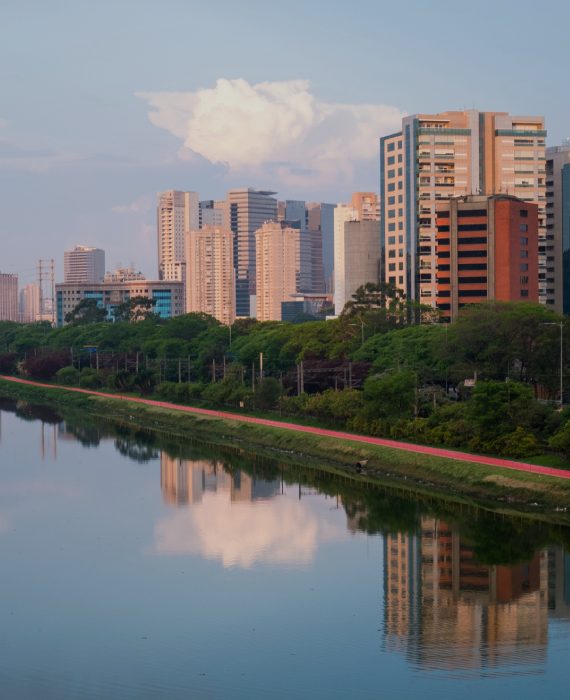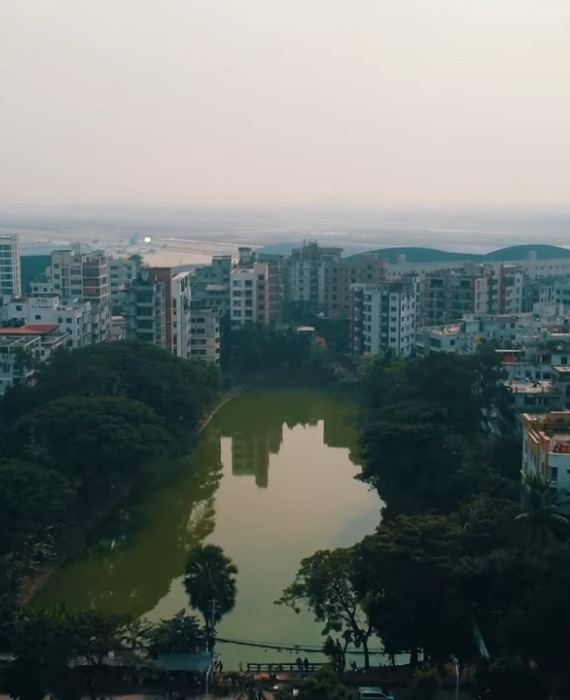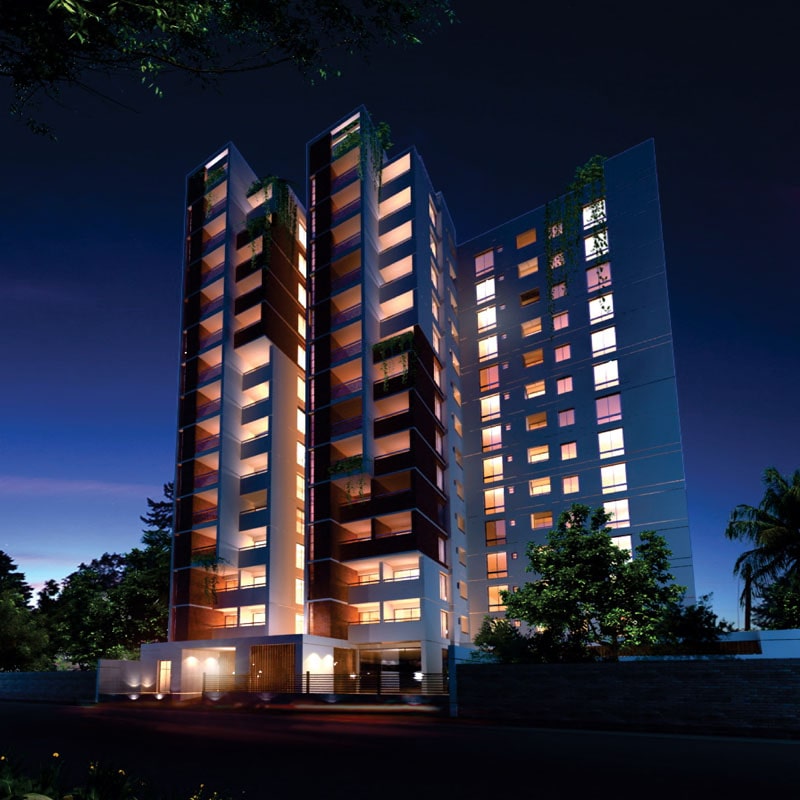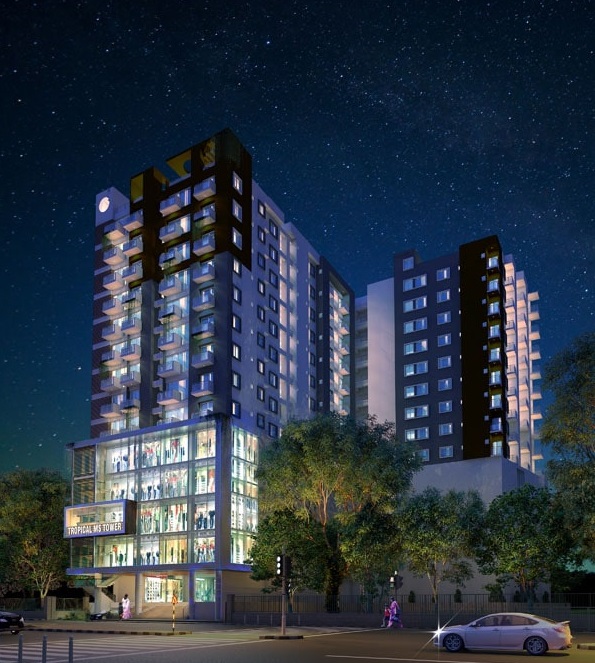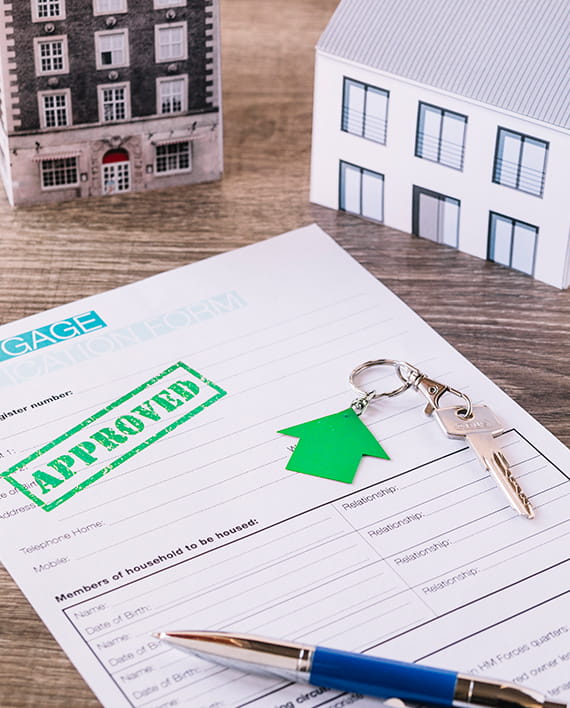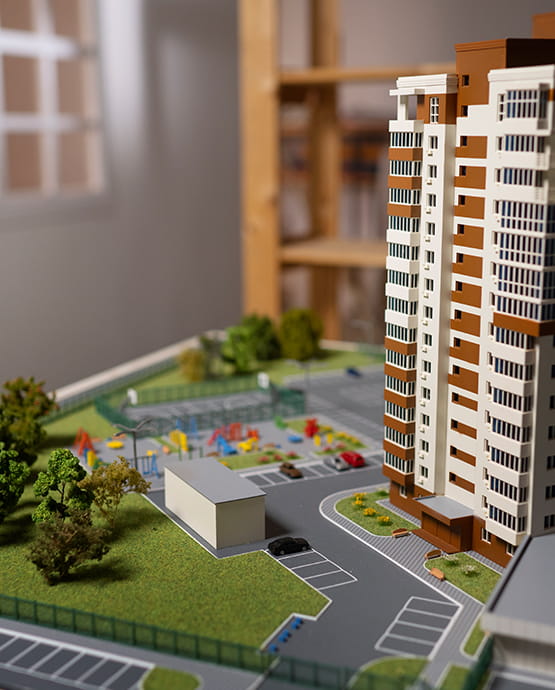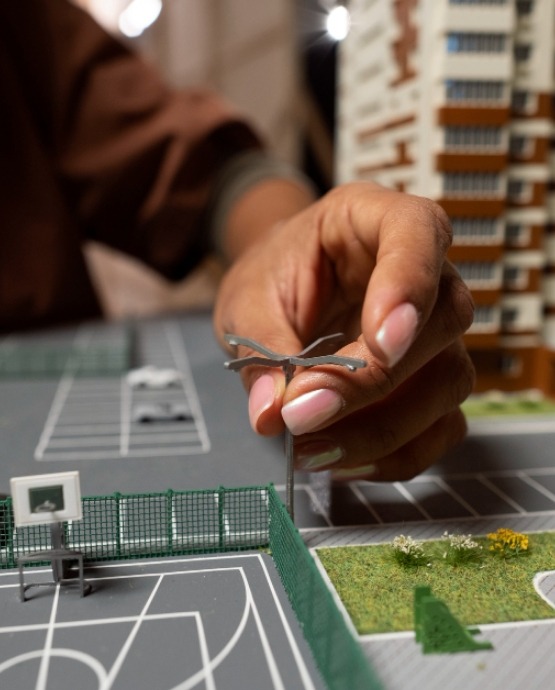Risk Management in Bangladeshi Real Estate Investment
- Oct 20, 2024
- Posted by: Tropical Homes
- Category: blog
Investing in real estate in Bangladesh has proven to be a lucrative venture due to the growing urban population, increasing demand for residential and commercial properties, and the country’s steady economic development. That’s why real estate developers in Bangladesh are developing new and lucrative projects and trying to attract the people of Bangladesh. However, like any investment, real estate comes with risks that investors must be aware of and manage effectively. This blog will explore the different types of risks associated with real estate investment in Bangladesh and provide practical strategies to mitigate them.
Understanding the Landscape of Real Estate in Bangladesh

Bangladesh has undergone significant economic and infrastructural growth over the past two decades, contributing to the booming real estate sector. Dhaka is witnessing rapid urbanization, with more people moving to metropolitan areas for jobs and better living conditions. This trend has increased the demand for housing, office spaces, and commercial buildings. The government’s focus on development projects like the metro rail, highways, and bridges further fuels the real estate market.
Despite these positive indicators, investing in Bangladeshi real estate is not without its challenges. Investors must contend with risks related to market fluctuations, land ownership disputes, regulatory hurdles, and infrastructure deficiencies. Effective risk management is key to ensuring long-term profitability and success in this sector.
Market Volatility and Economic Fluctuations

One of the primary risks in real estate investment is market volatility. The demand for real estate can fluctuate due to various factors, including changes in the country’s economic conditions, political stability, and global market trends. For example, periods of economic slowdown or political unrest may reduce the demand for properties, leading to lower returns on investment.
Moreover, real estate is highly sensitive to macroeconomic factors such as inflation, interest rates, and employment rates. Inflation can lead to increased construction costs, affecting project timelines and profitability. At the same time, high interest rates may make borrowing more expensive, discouraging potential buyers from investing in real estate.
Risk Mitigation Strategies:
-
Diversify Your Portfolio:
Instead of putting all your funds into a single property or location, consider diversifying your investment across different property types (residential, commercial, and industrial) and locations. This strategy helps reduce the impact of market fluctuations on your overall investment.
-
Stay Informed:
Regularly monitor the economic and political climate in Bangladesh, as these factors significantly influence the real estate market. Staying informed allows you to make timely decisions, such as delaying a purchase during a period of high inflation or selling a property before an economic downturn.
-
Work with Reputable Developers:
Invest in properties developed by reputable companies with a track record of delivering high-quality projects on time. Reputable developer companies in Bangladesh are more likely to withstand economic downturns and provide better returns on investment.
Land Ownership and Documentation Issues

Land ownership disputes are a common problem in Bangladesh, making it one of the biggest risks in real estate investment. The country’s land records are often poorly maintained, leading to cases of fraudulent land ownership claims. The reputation of the developer company matters the most in this scenario. Investors may unknowingly purchase land that is already claimed by another party, resulting in costly legal battles and delays in project completion.
Moreover, the process of verifying land titles and obtaining the necessary approvals from government authorities can be time-consuming and complex. The lack of a centralized digital land registry system exacerbates this problem, making it difficult for investors to verify the authenticity of land ownership documents.
Risk Mitigation Strategies:
-
Conduct Thorough Due Diligence:
Before purchasing any property, conduct a thorough investigation of the land’s ownership history and legal status. Hire a legal expert to verify the authenticity of land titles and ensure that there are no outstanding disputes or claims on the property.
-
Obtain Title Insurance:
Consider purchasing title insurance to protect yourself against potential legal disputes related to land ownership. Title insurance provides coverage for legal expenses and financial losses in case of ownership disputes.
-
Engage Local Experts:
Work with local real estate agents and legal professionals who are familiar with the local land laws and regulations. These experts can guide you through the process of verifying land ownership and obtaining the necessary approvals from government authorities.
Regulatory and Legal Risks

The regulatory environment in Bangladesh is often viewed as complex and bureaucratic, which can pose significant challenges for real estate investors. Delays in obtaining construction permits, zoning approvals, and utility connections are common, leading to increased project costs and longer timelines.
Additionally, changes in government policies or regulations can affect the real estate market. For example, an increase in property taxes or changes in foreign investment laws may impact the profitability of real estate projects. Investors must stay updated on the latest regulations and ensure that their projects comply with all legal requirements.
Risk Mitigation Strategies:
-
Stay Updated on Regulations:
Keep yourself informed about the latest changes in real estate laws and regulations in Bangladesh. This includes zoning laws, building codes, tax policies, and foreign investment regulations. Staying updated allows you to anticipate potential challenges and adjust your investment strategy accordingly.
-
Work with Legal Experts:
Engage a legal team that specializes in real estate law to help you navigate the regulatory landscape. Legal experts can assist with obtaining the necessary permits and approvals, ensuring that your project complies with local laws.
-
Lobby for Regulatory Reform:
Consider joining industry associations or advocacy groups that lobby for regulatory reform in the real estate sector. By working together with other investors and developers, you can push for changes that streamline the approval process and reduce bureaucratic delays.
Financing and Interest Rate Risks

Financing is a critical component of real estate investment, and access to affordable loans can make or break a project. In Bangladesh, banks and financial institutions offer loans for real estate investment, but high interest rates can significantly increase the cost of borrowing. This, in turn, affects the profitability of the investment.
Moreover, fluctuating interest rates can impact an investor’s ability to repay loans. If interest rates rise unexpectedly, it may become more difficult to meet monthly mortgage payments, leading to financial strain or even default.
Risk Mitigation Strategies:
-
Negotiate Favorable Loan Terms:
When securing a loan for real estate investment, negotiate with banks to obtain the most favorable terms possible. This may include lower interest rates, longer repayment periods, or flexible payment options.
-
Explore Alternative Financing Options:
In addition to traditional bank loans, consider alternative financing options such as private equity, real estate investment trusts (REITs), or crowdfunding. These options may provide more favorable terms and reduce your reliance on high-interest bank loans.
-
Fix Interest Rates:
Whenever possible, opt for fixed-interest-rate loans rather than variable-rate loans. Fixed-rate loans provide greater predictability and protect you from rising interest rates.
Infrastructure Deficiencies
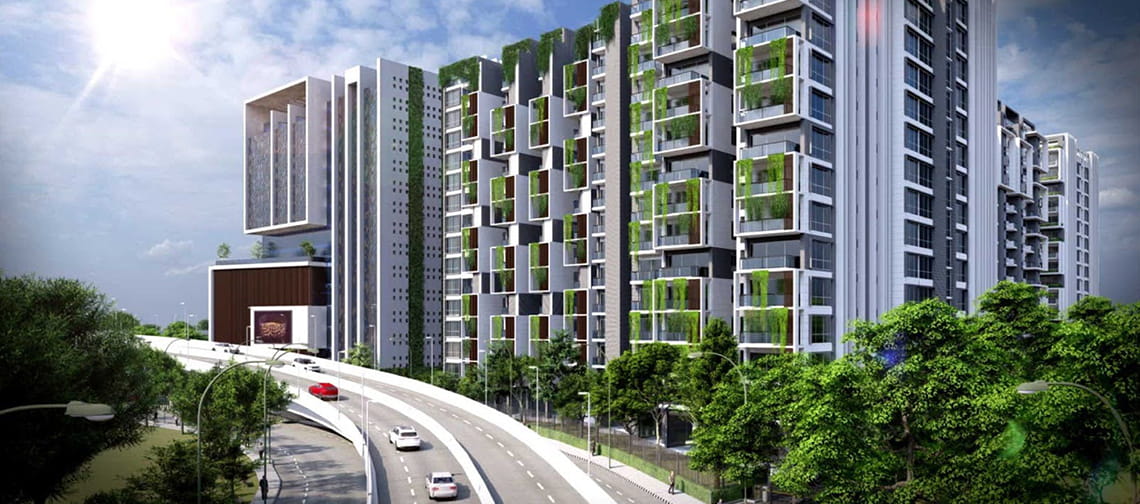
While urban areas like Dhaka are experiencing rapid infrastructure development, many parts of the country still lack basic infrastructure such as roads, electricity, water, and sanitation. Investing in properties located in areas with poor infrastructure can lead to lower property values and reduced demand for rental or commercial spaces.
Investors must carefully evaluate the infrastructure quality in the target areas before making a decision. Poor infrastructure not only affects property values but can also lead to delays in project completion, increased construction costs, and difficulty in attracting tenants or buyers.
Risk Mitigation Strategies:
-
Monitor Government Development Plans:
Keep an eye on government development plans and infrastructure projects in the target areas. Investing in areas that are set to benefit from new infrastructure projects (such as highways, metro rail, or power plants) can lead to significant appreciation in property values over time.
-
Partner with Local Developers:
Work with local developers who have a strong understanding of the infrastructure challenges in specific areas. These developers can help you identify properties in locations that are likely to experience future infrastructure improvements.
Real Estate Scams and Fraud

Unfortunately, real estate scams and fraud are not uncommon in Bangladesh. Some developers fail to deliver promised projects, misrepresent property values, or engage in fraudulent practices. These scams can lead to significant financial losses for investors, as well as legal complications.
Risk Mitigation Strategies:
-
Conduct Background Checks on Developers:
Before investing in a property, conduct thorough background checks on the developer’s reputation, track record, and financial stability. Ensure that the developer has a history of delivering projects on time and meeting quality standards.
-
Use Escrow Accounts:
When making payments to developers, consider using an escrow account to ensure that funds are released only when certain project milestones are met. This provides an additional layer of protection against fraud.
-
Verify Property Values:
Obtain independent property appraisals to verify the true market value of the property before making a purchase. This helps protect against developers who may inflate property values to attract investors.
Conclusion

Investing in real estate in Bangladesh offers significant potential for high returns, especially given the country’s rapid urbanization and ongoing infrastructure development. However, the risks associated with market volatility, land ownership disputes, regulatory challenges, and financing must not be overlooked. By conducting thorough due diligence, staying informed about the local market, and working with reputable developers and legal experts, investors can effectively manage these risks and ensure the success of their real estate ventures.
Real estate investment in Bangladesh is not without its challenges. Still, with careful planning and risk management, it remains one of the most secure and profitable investment opportunities in the country.
Frequently Asked Questions (FAQs)
1. What are the key risks involved in real estate investment in Bangladesh?
Answer: The primary risks include market volatility, land ownership disputes, regulatory and legal hurdles, financing challenges, and infrastructure deficiencies. Investors should be aware of these risks to manage their investments effectively.
2. How can I protect myself from land ownership disputes in Bangladesh?
Answer: Conduct thorough due diligence on the land’s ownership history, hire legal experts to verify land titles, and consider purchasing title insurance to cover potential legal disputes related to ownership claims.
3. What are the best ways to mitigate the impact of market volatility in real estate investment?
Answer: Diversifying your investment portfolio across different property types and locations, staying informed about economic conditions, and working with reputable developers are effective ways to reduce the impact of market fluctuations.
4. How can I navigate the complex regulatory environment in Bangladesh’s real estate sector?
Answer: Staying updated on the latest real estate laws, engaging legal professionals specializing in local real estate regulations, and working with industry associations that advocate for regulatory reforms are important steps to navigate legal and regulatory challenges.
5. What are some alternative financing options for real estate investment in Bangladesh?
Answer: Apart from traditional bank loans, investors can explore private equity, real estate investment trusts (REITs), or crowdfunding, which may offer more favorable terms and reduce reliance on high-interest loans.







